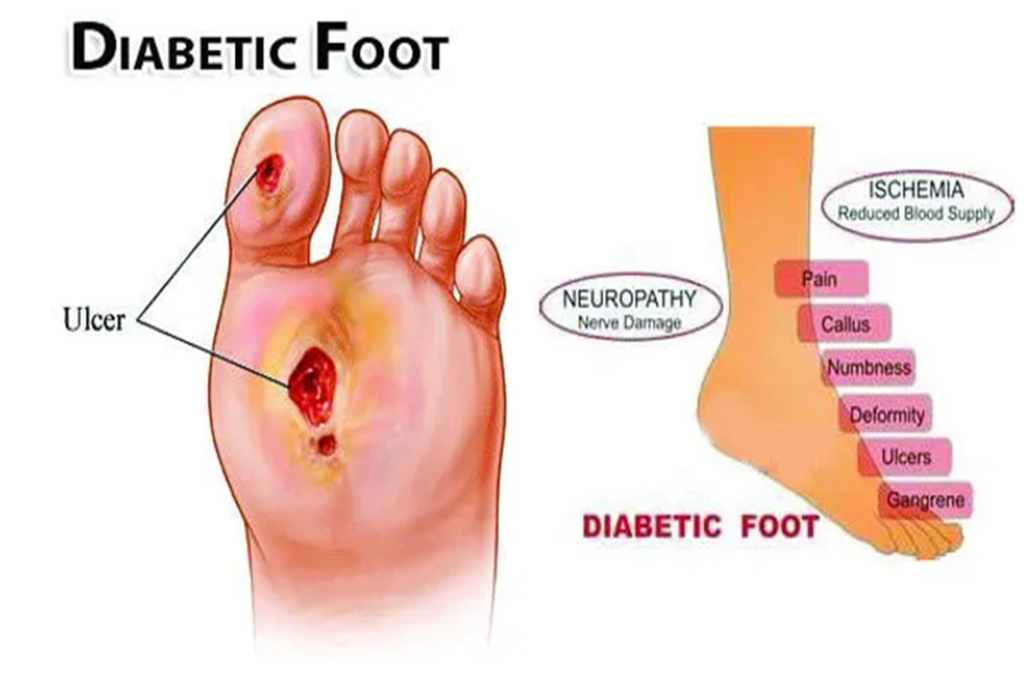
Overview:
Diabetic foot and gangrene are serious complications that arise from uncontrolled diabetes, resulting in poor blood circulation and nerve damage. Diabetic foot refers to infections, ulcers, or sores on the foot, which can worsen and lead to gangrene, where the tissue dies due to lack of blood flow or infection. If untreated, gangrene may require amputation to prevent the spread of infection.
Causes:
The primary cause of diabetic foot and gangrene is prolonged high blood sugar levels that damage the blood vessels and nerves, particularly in the feet. This causes poor circulation, leading to delayed healing of wounds and an increased risk of infection. Factors such as untreated foot injuries, poor hygiene, smoking, and poor management of diabetes contribute to the development of these conditions.
Symptoms Indicating Diabetic Foot/Gangrene:
Signs of diabetic foot and gangrene include persistent foot ulcers, foot pain or numbness, skin discoloration (blue or black), foul-smelling discharge, swelling, and fever. In more severe cases, the affected area may turn black or shriveled, indicating tissue death (gangrene).
Treatment:
Treatment for diabetic foot and gangrene may include wound care, antibiotics to treat infection, and blood sugar management. In some cases, debridement (removal of dead tissue) or surgical intervention, such as amputation, may be necessary to remove infected tissue. In advanced cases, a prosthetic may be required for mobility after amputation.
Precautions:
Regular foot inspections, maintaining proper foot hygiene, wearing suitable footwear, and managing blood sugar levels are crucial in preventing diabetic foot complications. Prompt treatment of any foot injuries or infections is also essential.
Prevention:
Prevention includes controlling blood sugar, maintaining good foot hygiene, proper footwear, regular foot checkups, and avoiding smoking. It’s also important to seek immediate medical care for any foot injury or infection to prevent further complications.
For expert care in treating diabetic foot and gangrene, visit The KDM Hospital in Lucknow. The hospital provides comprehensive services, including wound care, diabetes management, surgical treatment, prosthetics, and 24/7 doctor availability.
